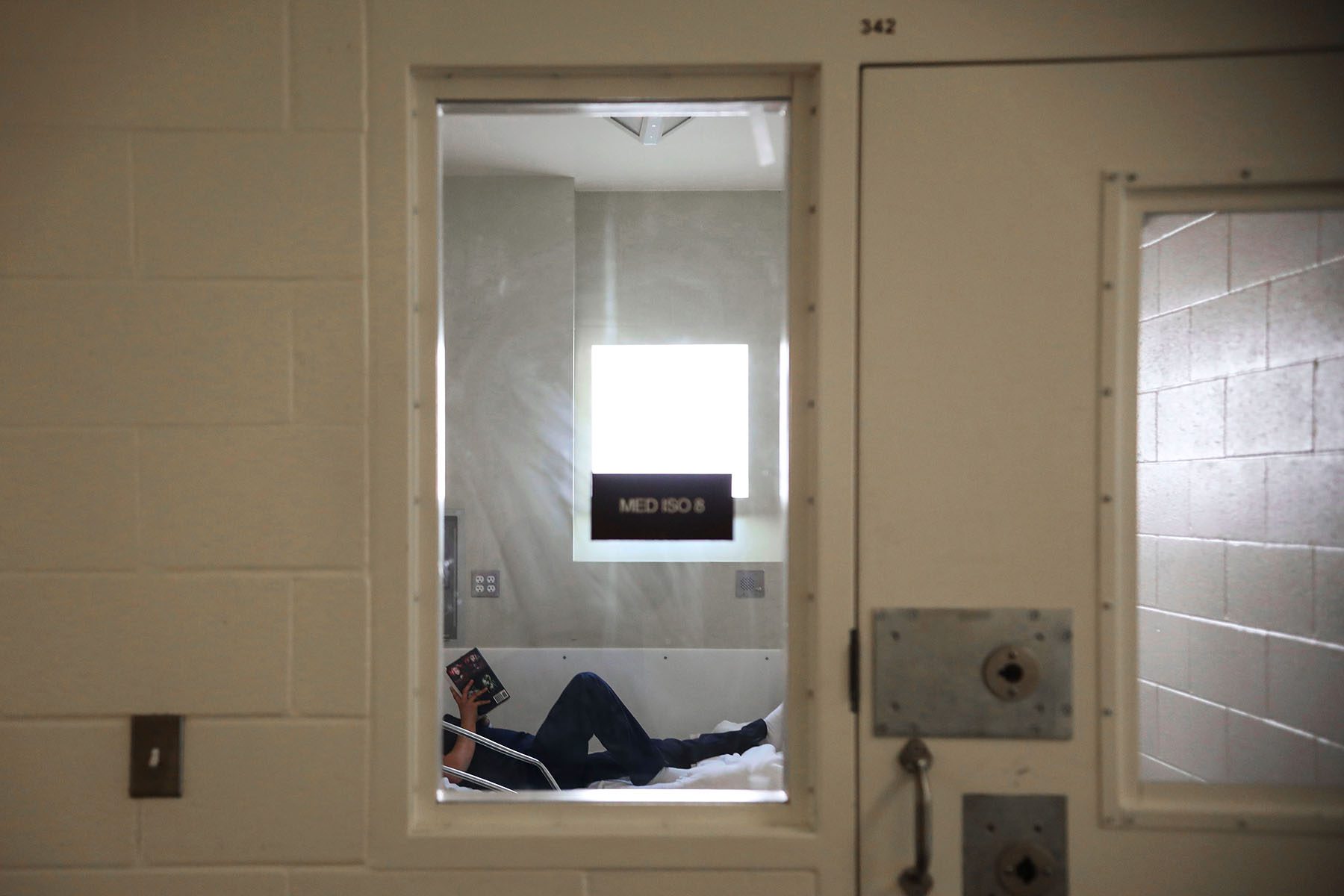It’s been nearly 10 years since Kanautica Zayre-Brown started taking estrogen. Her birth certificate and ID say “female.” She legally changed her name.
If it were up to her, her transition would already be complete. But at 40, Zayre-Brown, an incarcerated woman in North Carolina, is fighting for something that experts agree is a basic medical necessity for transgender people: gender-affirming medical care. Her case highlights the tensions between LGBTQ+ advocates and the Biden administration as trans people behind bars are being denied what experts agree is medically necessary care.
Zayre-Brown has a diagnosis of gender dysphoria, when a person’s gender does not align with their sex assigned at birth. Two years ago — with orders from a doctor — she began petitioning Anson Correctional Institution to provide her surgery that would help complete her transition. Her attorney, Jaclyn Maffetore with the ACLU, argues that Anson has a legal obligation to provide it.
“What the law requires is an individualized determination for each individual person for the medical care that they need,” Maffetore said. “The step that she’s seeking to take now is a step that has been in her plan of care for her gender dysphoria before she was incarcerated. And methods to alleviate her gender dysphoria [like hormone replacement therapy and affirming clothing] have just not been effective.”

“I just felt like they just didn’t care because they couldn’t understand me,” Zayre-Brown said. “When I take my clothes off, I don’t feel like the woman that I am.”
Maffetore said she can’t get a clear answer from the state on why her client does not meet the criteria for gender-affirming surgery. She also added that her client has been misgendered by prison staff.
“She is a woman. She has been living as a woman for the majority of her life,” Maffetore said. “That obviously seems like a failure on the part of [the state Department of Public Safety] to ensure that their staff is adequately trained and following their policies.”
Maffetore alleges DPS has been slow to provide explanations for the delay, blaming procedural delays and the pandemic. Now, Maffetore says the ACLU is prepared to file suit.
“Kanautica is in mental anguish, dealing with her gender dysphoria that has not been released through any other means and feeling like DPS has forgotten about her,” she said.
John Bull, a spokesperson for the North Carolina DPS, provided The 19th a copy with the department’s policy for caring for transgender people, which mandates that requests for surgery be fielded by a committee made up of health care and administration prison officials.
He added that health privacy laws prevent the state from commenting on Zayre-Brown’s specific case.
It also requires staff to use affirming names and pronouns for transgender staff, something that many staff members have neglected to do, Zayre-Brown claims. Although her name is legally changed, her “deadname,” a term trans people use to refer to a former name, still appears in searches on the state’s database of incarcerated people.
Treatment of transgender people in state and federal prisons has come under intense scrutiny in recent years. In courting the LGBTQ+ vote, then-candidate Joe Biden promised that if elected president, he would bolster protections for transgender people behind bars.
Among those promises was enforcement of the Prison Rape Elimination Act, a law passed unanimously by Congress in 2003 and implemented in 2012 that, in part, required prisons to house transgender people on a case-by-case basis, with an emphasis on where they would be safest. An NBC News investigation in 2020 found that in nearly in 5,000 transgender prison placements, just 15 transgender prisoners were housed according their lived genders.
On his campaign website, Biden also pledged to “ensure all transgender inmates in federal correctional facilities have access to appropriate doctors and medical care—including OBGYNs and hormone therapy.”
The Department of Justice, which enforces PREA in state prisons, would not comment on how far the administration has come in developing policy toward those goals. In an email to The 19th, the department pointed to its investigation into conditions facing trans people in Georgia.
In April, the DOJ filed a statement of interest in the case of Ashley Diamond, a transgender woman incarcerated in Georgia who alleged that the state failed to provide her gender-affirming medical care. The statement argues that constituted cruel and unusual punishment and that the U.S. government has an obligation under the Constitution to protect against it.
“By taking action in this case, the Justice Department is reminding departments of corrections that prison officials have the obligation to assess and treat gender dysphoria just as they would any other medical or mental health condition,” said Associate Attorney General Vanita Gupta in a statement at the time.
LGBTQ+ advocates celebrated the Justice Department’s filing in the Georgia case as potentially landmark for the future of trans rights. The case remains pending.
When I take my clothes off, I don’t feel like the woman that I am.
Kanautica Zayre-Brown
Two years ago, the 9th U.S. Circuit Court of Appeals ruled that Idaho must provide gender-affirming care to Adree Edmo, who had repeatedly been denied surgery while serving a 10-year sentence for a sex crime.
Gov. Brad Little wrote in a statement at the time that “hardworking taxpayers of Idaho should not be forced to pay for a convicted sex offender’s gender reassignment surgeries.” Emdo’s attorneys countered that her right to care had nothing to do with her crime.
Under the Trump administration, the Justice Department did not enforce the part of PREA governing the placement of incarcerated transgender people. While PREA does not directly mandate surgery, access to both often go hand in hand. According to Project for Incarcerated Transgender Survivors at American University, many prisons won’t transfer transgender people who have not had surgery. Conversely, those who petition for surgery from men’s prisons are almost always denied, court records show.
A spokesperson for the Justice Department said states must comply with the PREA rules, placing transgender people on a case-by-case basis and certifying that they are in compliance, or risk losing 5 percent of their funding.
LGBTQ+ advocates have been eager to see if the Biden administration might enforce health care protections for trans people behind bars in state and federal prisons and revise changes made the federal Bureau of Prisons Manual under the Trump administration that removed transgender PREA protections.
In the interim, people like Zayre-Brown are waiting. She doesn’t know how much longer she can hold out, she said. Her last emergency grievance, in which she threatened self-mutilation, was denied. She also volunteered to pay for her own surgery and recover at home under home monitoring.
“I really, really, really understand now how trans individuals, trans sisters, and brothers have passed away,” she said. “I totally understand how they feel from not having access to adequate care. I never thought I would understand it. I understand it now.”
Recommended for you

Incarcerated trans women won sweeping prison reforms in Colorado. It could be a model for other states.





